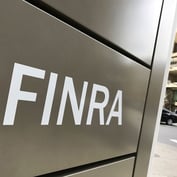Investors who rely on the BrokerCheck disclosure system maintained by the Financial Industry Regulatory Authority (FINRA) to check out the background of their current or potential stockbrokers are not getting access to crucial information about financial professionals even though such information is available from many state securities agencies operating under robust public record laws, according to a new analysis from the Public Investors Arbitration Bar Association (PIABA).
PIABA is warning that the extent of omitted “red flag” background information is so serious that unwitting investors relying on BrokerCheck may very well select brokers with whom they would not do business if they had access to the more complete picture available to FINRA but now being hidden.
The PIABA report underscores in stark terms the high stakes for investors: “The information that FINRA omits in its reports is objectively important to investors seeking to make an informed decision about selecting a broker. The result is that consumers who use the BrokerCheck system to conduct their due diligence may make an incorrect assumption that all relevant information has been disclosed and may opt to rely on a broker they would have avoided had they known more information.”
Available at http://www.piaba.org, the PIABA analysis find that FINRA has elected to provide limited information about brokers even in the face of calls for fuller disclosure from the Securities and Exchange Commission (SEC), state securities regulators, consumer groups, and other organizations. The PIABA analysis makes clear that the only way for the BrokerCheck system to function as intended to educate and protect investors is to require that FINRA disclosures be made consistent with the more complete reporting provided by state securities agencies.
Attorney Jason R. Doss, president, PIABA, said: “All investors should be able to obtain complete and consistent information about brokers. Period. The quality of the disclosure you get about brokers should not depend on which state you live in. There is no rational basis for FINRA to hide key ‘red flag’ information that investors in some states can get from state-level agencies. Given that FINRA has failed repeatedly to take action to increase the disclosures in BrokerCheck, Congress and the SEC need to compel them to do so if necessary.”
“The veil of secrecy that exists in the current BrokerCheck system should be lifted to allow consumers access to a comprehensive, reliable source so that they can make informed decisions about a profession that has extraordinary influence over their life savings,” said Christine Hines, Public Citizen’s consumer and civil justice counsel. “It is indefensible for FINRA to withhold critical information, already under its control, from the public.”
“Investors go to BrokerCheck to get information about their broker. They should not have to then follow-up with their state securities regulator to possibly obtain additional, relevant information about that broker that is already in FINRA’s possession. They should be able to get all of the relevant information from one central location,” said Christine Lazaro, director of the Securities Arbitration Clinic, St. John’s University School of Law.
Denise (Denny) Voigt Crawford, former Texas Securities Commissioner (1993-2011) and former president, North American Securities Administrators Association (1996-1997 and 2009-2010), said: “I have been a long-time, very vocal critic of FINRA’s indefensible policies regarding the release of information via the CRD. It really is appalling that FINRA is given the authority to collect detailed information about financial professionals yet is not required to make a full disclosure of that information. This practice is very detrimental to the interests of investors, policy makers and the public generally.”
For its new analysis, PIABA compared FINRA BrokerCheck and state-level disclosures for a number of brokers. PIABA found the following:
* When a broker-dealer fired a registered broker, BrokerCheck reports excluded the reason for the termination and other commentary regarding the termination, although this information is available from states.








 March 08, 2014 at 08:38 AM
March 08, 2014 at 08:38 AM










